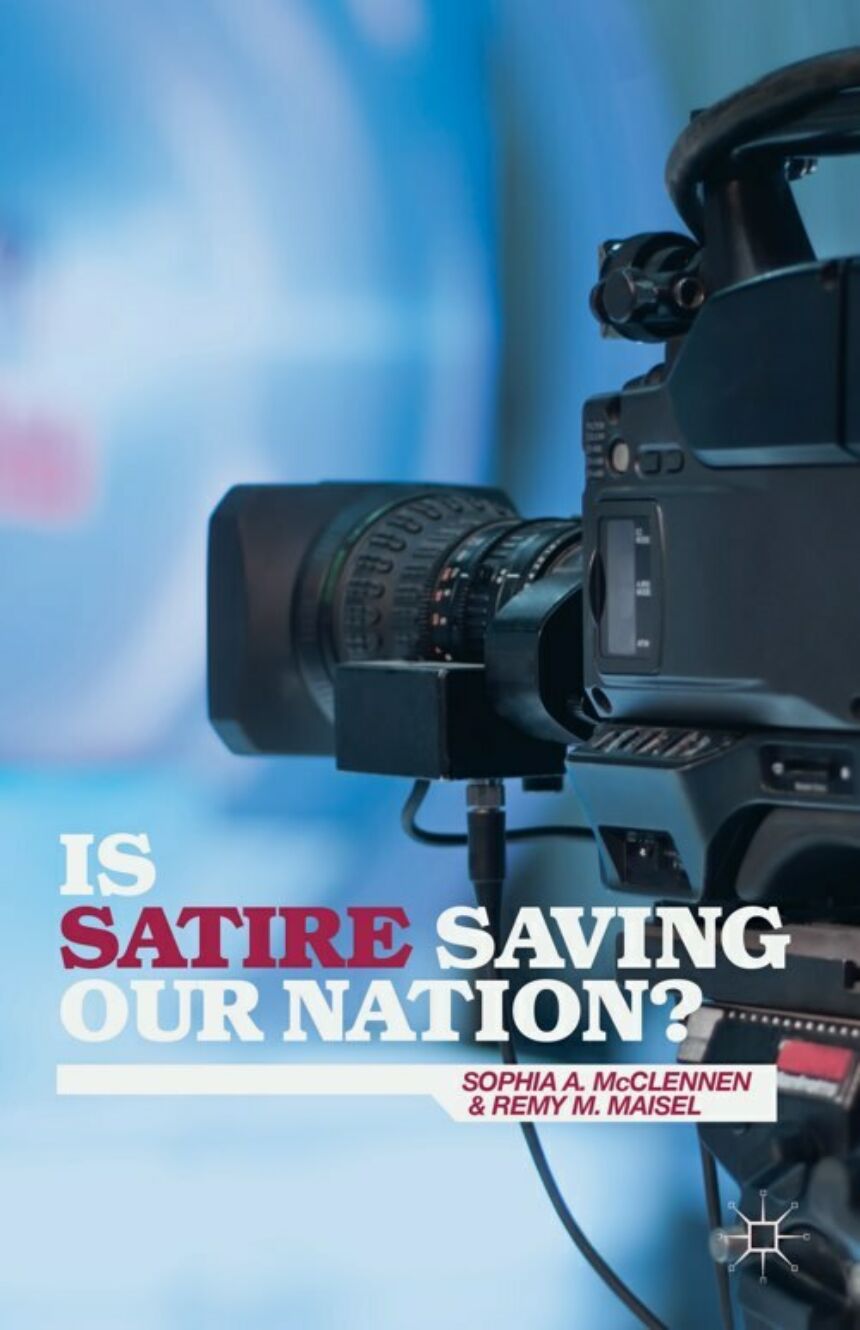October 22, 2014
SIA professor’s new book shows us how satire benefits American political discourse

University Park, PA -- What if the next presidential election is decided by viewers of The Daily Show, The Colbert Report and Last Week Tonight with John Oliver, rather than viewers of CNN, Fox News and MSNBC? Are satirists giving a more objective and factual view of the news?
In her new book, Penn State School of International Affairs professor Sophia McClennen argues that as millennials enter the voting pool, they predominantly watch their news in the form of satire, instead of cable news, and this is changing politics. The book, “Is Satire Saving our Nation: Mockery and American Politics,” co-authored with PSU media studies undergrad Remy Maisel points out that, while political satire has always existed alongside American politics, news parody shows are making more of an impact on millennial viewers, redefining how they engage in voting and politics.
McClennen, who is also a professor in Penn State's Department of Comparative Literature, explains that “One trend we were able to study is the increase in citizen produced satire, where citizens use Twitter, Facebook, Tumblr and more to question the media and politicians. We argue that the development of the ‘citizen-satirist’ has had a major impact on the ways that voters engage with current political issues.”
This project is the only known instance of a Penn State professor and current undergraduate student co-authoring a book together.
The timeliness of the topic accompanies the news that NBC pursued Jon Stewart to host “Meet the Press.” With Stephen Colbert preparing to host The Late Show, replacing David Letterman at the end of the year, and John Oliver launching his own news parody show on HBO this past fall, the demand for news parody is growing, as viewers rely on it for accuracy and objectivity.
McClennen and Maisel claim that satire will save American politics because cable news can be often biased, inflammatory, and blatantly inaccurate, and citizens that blend entertainment with political action are more engaged. More importantly, the authors point out that satire doesn’t tell viewers what to think; it uses irony to get viewers to think critically.
Maisel argues that “A lot of the hand wringing over millennials rests on false assumptions: that they only get their news from The Daily Show, first of all, and that it would be a bad thing if they did. But neither of those things is true.”
While the book focuses on satire news like that of Jon Stewart, Stephen Colbert, and The Onion, it also shows the impact of other satirical outlets, and tracks the history of satire American politics, and how it’s shaped the discourse.
McClennen is a professor at the School of International Affairs and directs Penn State's Center for Global Studies and has ties to the departments of Comparative Literature, Spanish, and Women's Studies. She has published eight books, and writes regularly for the Huffington Post and Salon.com.
Remy M. Maisel is an undergraduate student at Pennsylvania State University, USA, and blogger for the Huffington Post. Remy is pursuing a B.A. in Media Studies with an emphasis on Society and Culture. She has already co-written a second book, Bears & Balls: The Colbert Report A-Z.
“Is Satire Saving Our Nation: Mockery and American Politics,” is published by Palgrave.
